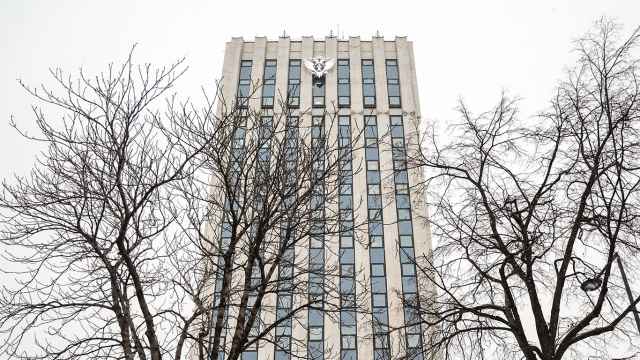The MT Conferences section did not involve the reporting or the editorial staff of The Moscow Times.

Elena Trusova
Partner, Dispute Resolution
Goltsblat BLP, Russian Practice of Berwin Leighton Paisner
On 25 November, the President approved a draft law amending the so-called Anti-Piracy Law designed to protect IP on the Internet.
The current version of the Anti-piracy Law covers only films with rights protected as follows: following an application by the rightholder for interim relief, the Moscow City Court issues a relevant judgement and promptly, via the Federal Supervisory Service for Communications, Information Technology and the Media (Roskomnadzor), blocks access to the website illegitimately hosting the relevant film (the holder of the rights to the film should file a statement of claim with the Moscow City Court to protect its rights against the given website within 15 days).
The amendments foresee that the Anti-Piracy Law will cover not only films but also other items subject to copyright and related rights (other than photographs): sound recordings, books, software, etc. They also stipulate the pre-litigation procedure for serving on website owners claim letters (applications) alleging illegitimate hosting of items subject to copyright and related rights and establishing, in particular, that the website owner must delete the given item within 24 hours of receiving the claim letter and that the documents confirming the rights to the item should not be attached to the claim.

Evgeny Oreshin
Senior Associate, Dispute Resolution
Goltsblat BLP, Russian Practice of Berwin Leighton Paisner
Yet the law does not imply that a claim must be served before a statement of claim or an application for interim relief is filed, as claim letter serving is a right rather than an obligation of the rightholder.
One of the key new developments foreseen by the amendments is that the law allows an entire website that repeatedly and illegitimately hosts items subject to copyright or related rights to be permanently blocked.
According to the law, this is to be done as follows: the claimant files a statement of claim with the Moscow City Court seeking protection for its rights to an item covered by copyright or related rights that has been illegitimately posted on a particular website; if the claimant wins this case and a court judgement becomes effective, the claimant may then file a claim against the same website, the Moscow City Court hears a second case and, on this case, it also makes a decision on blocking the website. Subsequently, under a judgement by the Moscow City Court on blocking access to the website, the operators block access to it on the basis of relevant notices received from Roskomnadzor.
In our opinion, the possibility of blocking websites is a very effective remedy. The traditional remedies currently available (claims for several specific IP items to be deleted, claims for compensation for several specific IP items, etc.) could not protect the rightholders interests in a situation when the scale of the infringements on the Internet is enormous. For example, after an IP item of the rightholder is deleted from the website, it usually reappears on the website or other IP items of this rightholder appear on the website.
Many are concerned that these new developments might be used against legal websites. We think that the new amendments could not lead to blockage of legal websites, which could consider all claim letters from rightholders effectively and settle all disputes before court proceedings are initiated.
In addition, according to the letter of the law, the Moscow City Court may but is not required to block the website in such a case. Apparently, the Moscow City Court could take into account all the circumstances pertaining to the particular website: whether it is a purely pirate website, the scope of the right violation on it, court judgements previously issued against the website (including by state arbitration courts), the guilt of the website owner, whether the website owner takes any measures to protect IP rights and how effective these are (for instance, whether the website makes continuous use of digital fingerprint technology for all rightholders in order to block all illegitimately uploaded content automatically).
It all largely depends on the practice of the Moscow City Court, as the law does not give a detailed description of the grounds for blocking websites.
The new rules will, of course, make all website owners more attentive to right protection on the Internet and provide rightholders with an effective tool for protecting their rights.
The MT Conferences section did not involve the reporting or the editorial staff of The Moscow Times.
A Message from The Moscow Times:
Dear readers,
We are facing unprecedented challenges. Russia's Prosecutor General's Office has designated The Moscow Times as an "undesirable" organization, criminalizing our work and putting our staff at risk of prosecution. This follows our earlier unjust labeling as a "foreign agent."
These actions are direct attempts to silence independent journalism in Russia. The authorities claim our work "discredits the decisions of the Russian leadership." We see things differently: we strive to provide accurate, unbiased reporting on Russia.
We, the journalists of The Moscow Times, refuse to be silenced. But to continue our work, we need your help.
Your support, no matter how small, makes a world of difference. If you can, please support us monthly starting from just $2. It's quick to set up, and every contribution makes a significant impact.
By supporting The Moscow Times, you're defending open, independent journalism in the face of repression. Thank you for standing with us.
Remind me later.





